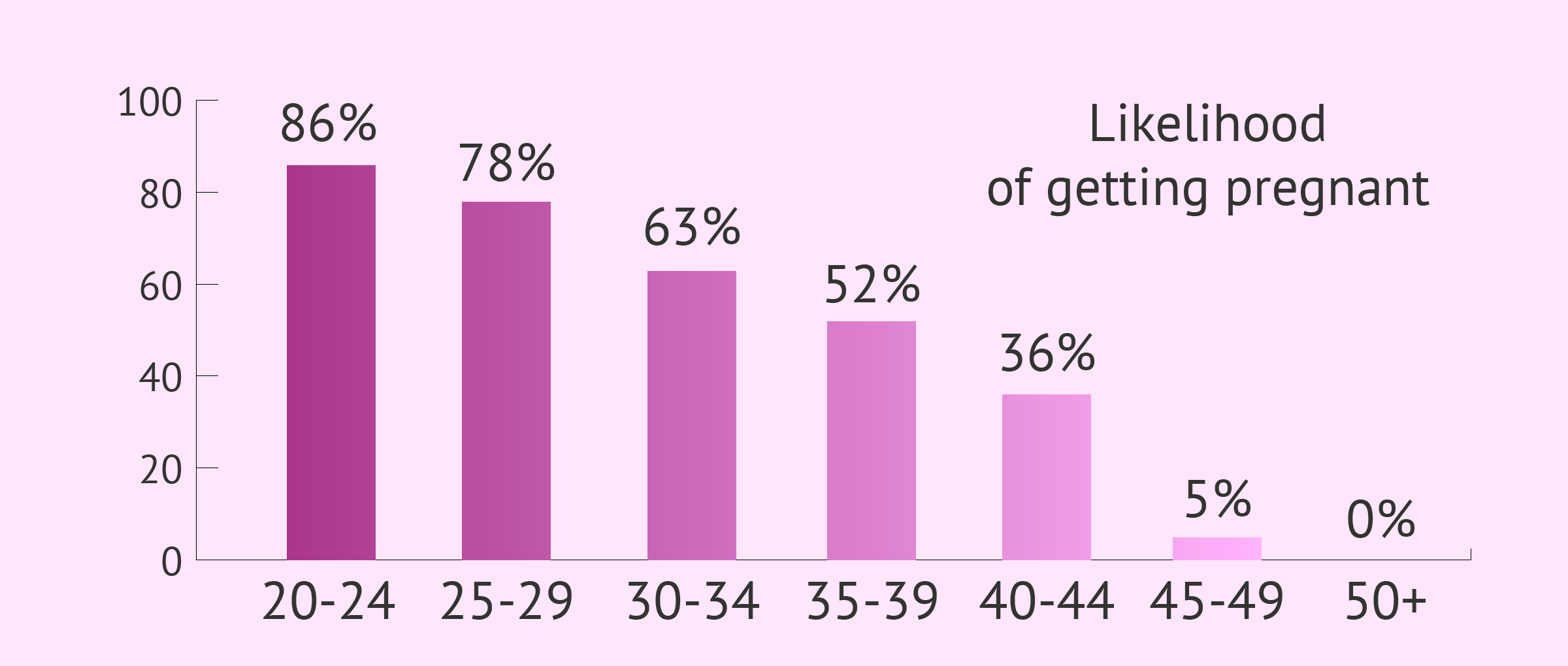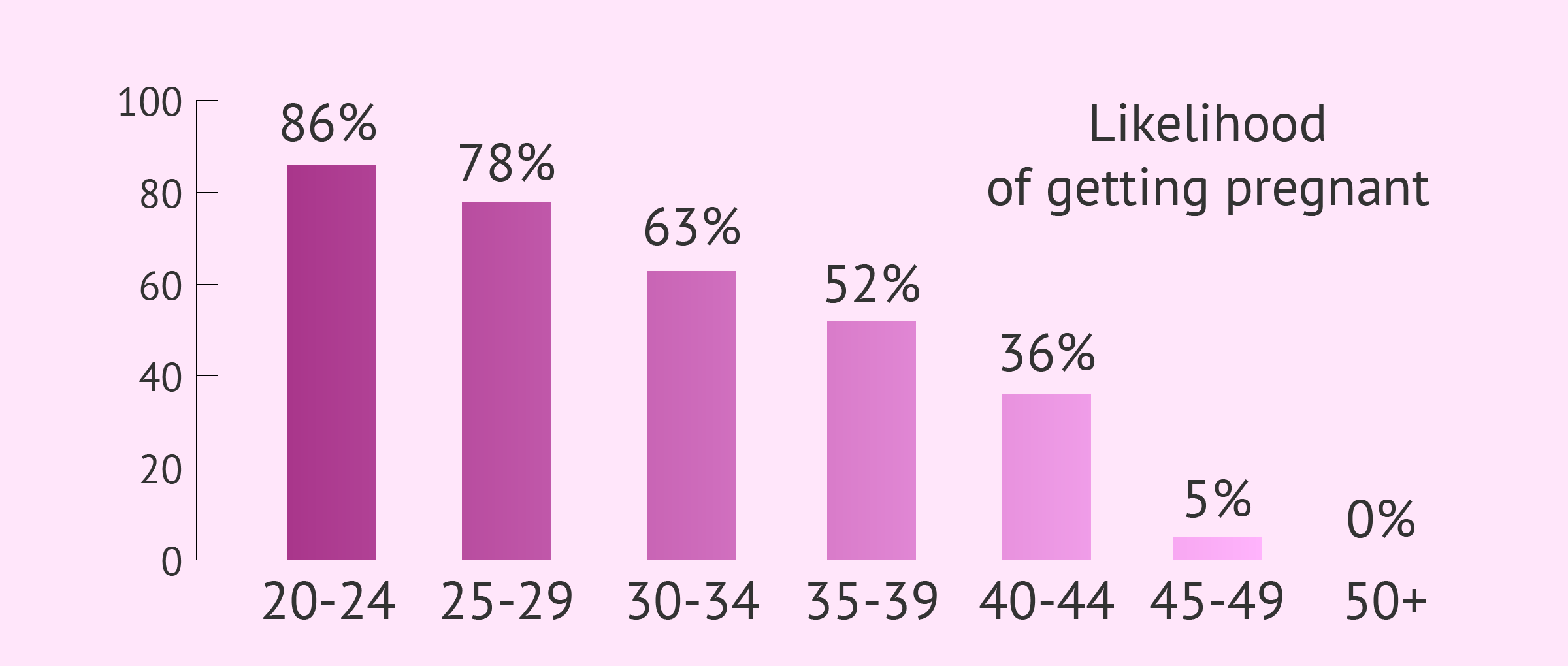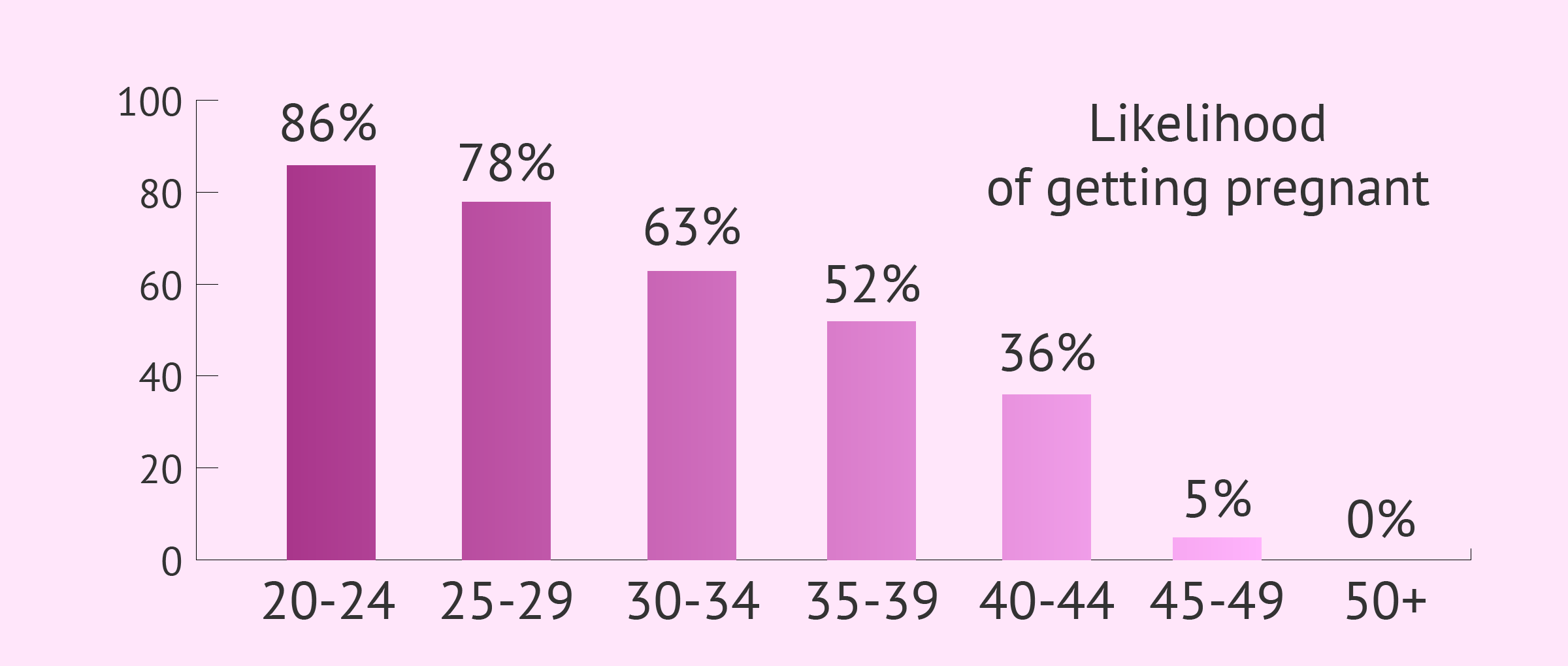Age and Fertility

Contents:
- Fertility and Age
- The Age of Fertility in Women
- The Age of Fertility in Men
- Why Does Fertility Decrease With Age?
- Identification of Infertility Among Mature Women
- Infertility Treatment Opportunities for Mature Women
Fertility and Age
Late pregnancy is becoming more widespread in the Western society. For example, in the UK the average childbearing age increased to 40 years, compared to 23 in 1968 and 29.3 in 2008. There are several reasons why many couples prefer to have children after establishing strong relationships and achieving financial stability. There is also a growing number of late marriages and remarriages. Moreover, it is quite difficult to find a suitable partner, or one of the partners may have health issues that should be addressed first.
The Age of Fertility in Women

A woman has about 20 best years of reproductive age. Fertility gradually decreases around the age of 30, especially after the age of 35. Every month, there is a 20 % opportunity for a healthy, fertile 30-year-old woman to conceive. This means that from every 100 fertile women aged 30 years, who are trying to get pregnant during one cycle, 20 women will be successful, and another 80 will have to try again. Starting from the age of 40, women have less than 5 % chance per cycle to get pregnant, which means that only 5 women out of 100 can expect to get pregnant in each month.
Women do not remain fertile until menopause. The average age of menopause is 51, but most women are not able to become pregnant already at the age of 40. This percentage is correct bot for natural conception, and for in-vitro fertilization (IVF). Although the media can often persuade women and their partners that they can conceive with IVF, but you need to know that woman’s age affects the success rates in treating infertility.
The Age of Fertility in Men
Unlike women, the level of fertility in men declines much later. With aging, the sperm quality deteriorates, but in general, it does not become a problem all the way up to 60 years. Unlike women, men do not have such sudden or noticeable changes in fertility and sexual activity, they become more noticeable only with aging. Despite these changes, there is no maximum age at which a man is not able to conceive a child.
As a man is aging, his testosterone level decreases gradually, stabilizing around the age of 60. Most men notice a change in their sexual life in the age of 60-65. Reduction of testosterone is the principal cause of the changes that occur in men in their sexual life.
Why Does Fertility Decrease With Age?
Ovarian aging is the most significant factor. It is a part of the normal age-related changes that occur in organs and tissues. Most women have about 300 000 ovules in the ovary at the end of puberty. For each ovule, which excels at ovulation, there are 500 ovules that do not ripen.
By the time a woman reaches menopause, which usually occurs in the ages of 50-55, only a few thousand eggs remain. As a woman is aging, the eggs remaining in her ovaries also age. The aged eggs often have damaged DNA, as the DNA repair system wears out. This makes the eggs less suitable for fertilization and the resulting embryos are poorly capable of implantation. Develop follicles in mostly due to genetics, although women's lifestyle (e.g., addiction to smoking) can also affect fertility.
With age, fertilization is associated with increased risk of chromosomal anomalies (such as Down's syndrome). The risk of chromosomal abnormalities among women aged 20 is 1/500, while among women aged 45 it is 1/20. Gynecological problems – cavity infections, damaged tubes, endometriosis, uterine fibroids, ovulation problems, etc. also increase with age. There is also the possibility of premature menopause. Aging in women has increased likelihood of diseases that negatively affect her fertility.
Sexual functions – libido, the frequency of sexual intercourse, etc. also decrease with age. There is information about the influence of age on the implantation readiness of endometrium – this ability decreases with age. The aging processes influence not only women but also men, although to a much lesser extent. Age affect the sperm quality and frequency of coitus. However, there is no maximum age when men are no longer able to conceive a child.
Statistics show that for men aged below 25 the average duration of relations with a partner for conceiving a child is 4.6 months, whereas, at the age of 40 years, this period is extended to 2 years. A recent study in Brazil showed that the chances of conceiving a child fall by 7 % every year starting at the age of 41. Mature mother's age increases the risk of autosomal dominant diseases (Marfan’s syndrome, neurofibromatosis, and aсhondroplasia).
Identification of Infertility Among Mature Women

We recommend that you seek advice from your doctor as soon as possible, in order to start examination and treatment without delay. To assess the potential fertility of mature women different tests can be done – for example, blood tests for the level of hormones, such as FSH, LH, estradiol and inhibin on the 3rd day of menstruation.
When planning a pregnancy, most likely you will be notified about the risk of miscarriage and chromosomal anomalies with regard to your age. In addition, you will learn about the potential complications of pregnancy, such as blood pressure, bleeding, and diabetes.
Infertility Treatment Opportunities for Mature Women
There are very limited options for the treatment of infertility in mature women in premenopausal or menopausal age. Mature women are poorly responsive to the stimulation of the ovaries; the chance to give birth to a living child, even when IVF, is considerably lower than in younger women. According to the SART report 2000, the birth rate of surviving children on every egg retrieval is 15 % in women aged 40.
- at the age of 41 – 11 %;
- at the age of 42 – 8 %;
- at the age of 43 – 5 %;
- at the age of 44 and over – 2 %.
In addition, more mature women have a higher risk of health problems during pregnancy and childbirth, such as gestational diabetes, placenta previa, detachment, cesarean section, premature birth, blood clotting, etc.
To improve the ECO-efficiency indicators among mature women, some clinics recommend assisted hatching, embryo transplant in the fetal bladder, pre-implantation diagnostics and transplant high-quality embryos. Also, in some countries, it is recommended to transplant large numbers of embryos.
Other treatment options include:
- Egg donation using eggs from younger donors. Bewley and Ledger (2009) report that more than half of the surviving children born after IVF in women over 40 were conceived with donor eggs.
- Embryo donation – by consent of the couples, and if men have problems with sperm.
- Surrogacy using the sperm of biological father and donor eggs.
- Adoption and guardianship.
- Life without children.